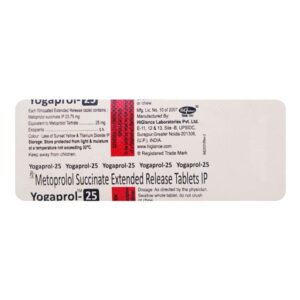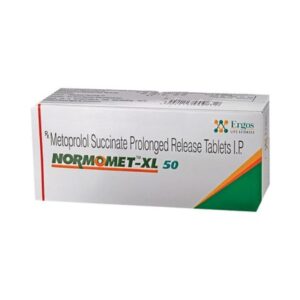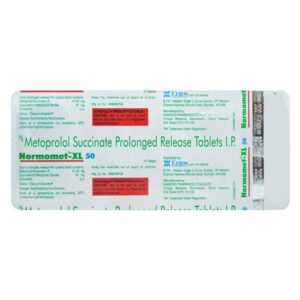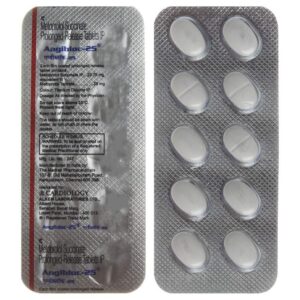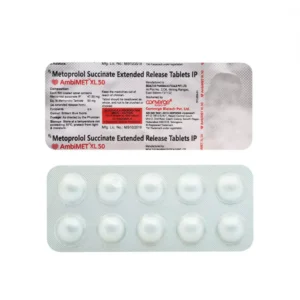METOPROLOL SUCCINATE
METOPROLOL SUCCINATE: Metoprolol succinate is a medication classified as a beta-blocker. It is commonly prescribed to treat high blood pressure, angina (chest pain), and heart failure. Metoprolol succinate is also used to prevent migraines and increase survival rates after a heart attack.
This drug works by blocking the action of certain natural substances in the body, such as epinephrine, on the heart and blood vessels. By doing so, it reduces heart rate, blood pressure, and the workload on the heart, which ultimately helps to decrease the risk of heart attacks and strokes.
Metoprolol succinate is typically taken orally in the form of extended-release tablets. The usual starting dose for hypertension ranges from 25 to 100 mg once daily, and for angina or heart failure, it can range from 25 to 200 mg once daily. For migraine prevention, the typical dose is 50 to 100 mg once daily. However, the actual dose may vary depending on individual factors, and it is important to follow the dosage instructions provided by your healthcare provider.
Common side effects of metoprolol succinate include tiredness, dizziness, lightheadedness, slow heartbeat, diarrhea, and decreased sexual ability. Some individuals may also experience cold hands and feet, mental/mood changes, and difficulty sleeping. In rare cases, serious side effects such as severe allergic reactions, worsening heart failure, and irregular heartbeat may occur. It is crucial to seek medical attention if any severe side effects are experienced.
As with any medication, it is essential to inform your healthcare provider of any other medications or supplements that you are taking to avoid potential drug interactions. Metoprolol succinate can interact with certain medications, including other blood pressure medications, calcium channel blockers, and antidepressants.
Overall, metoprolol succinate is a commonly prescribed beta-blocker that effectively treats high blood pressure, angina, heart failure, and migraines. It works by reducing heart rate and blood pressure while lowering the workload on the heart. It is important to follow the prescribed dosage instructions and discuss any concerns or side effects with your healthcare provider.

